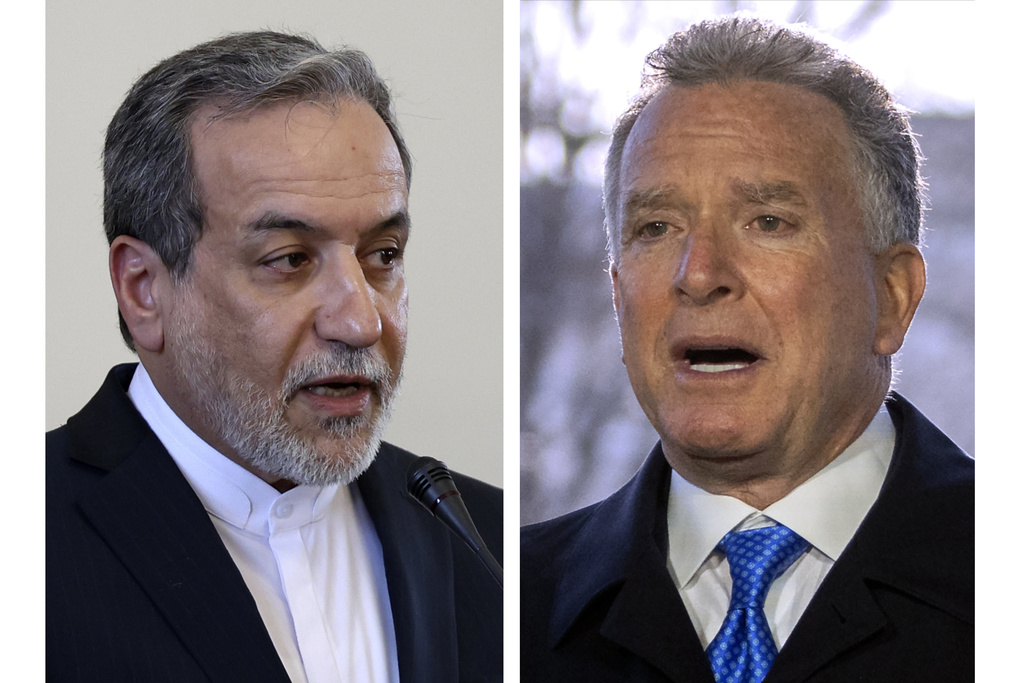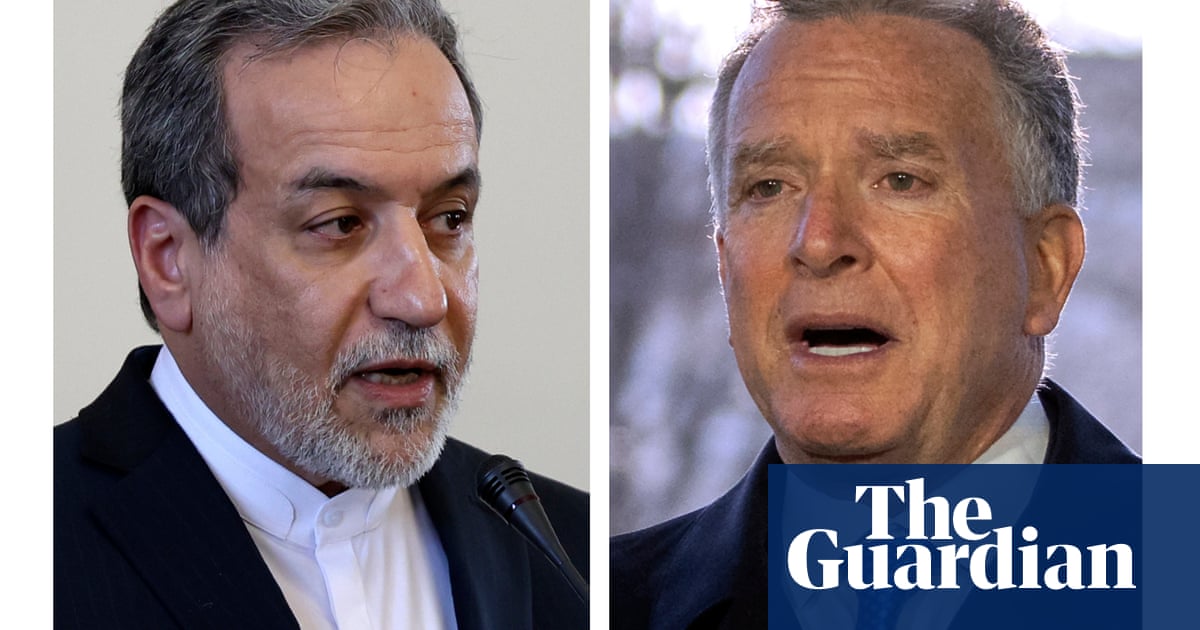U.S.-Iran Nuclear Talks Planned Amid Rising Regional Tensions
The U.S. and Iran prepare for indirect nuclear discussions in Oman, amid skepticism from Israeli leaders and military tensions over Iran's nuclear progress.

Israel is skeptical that they will end the Islamic Republic’s nuclear threat, while Tehran is adamant that it will refuse to dismantle the infrastructure that puts it on the doorstep of a nuclear bomb.
Negotiations Scheduled With Iran, but to What End?
 New York Sun·10d·Mixed ReliableThis source has a mixed track record—sometimes accurate but also prone to bias, sensationalism, or incomplete reporting.RightThis outlet favors right-wing views.
New York Sun·10d·Mixed ReliableThis source has a mixed track record—sometimes accurate but also prone to bias, sensationalism, or incomplete reporting.RightThis outlet favors right-wing views.
Iran has withstood repeated sanctions programmes over recent decades, and Iranian military leaders have previously threatened to cut off regional oil exports – a significant proportion of the global energy supply.
Tehran sceptical ahead of upcoming US-Iran nuclear talks
 Al Jazeera·10d·ReliableThis source consistently reports facts with minimal bias, demonstrating high-quality journalism and accuracy.Leans LeftThis outlet slightly leans left.
Al Jazeera·10d·ReliableThis source consistently reports facts with minimal bias, demonstrating high-quality journalism and accuracy.Leans LeftThis outlet slightly leans left.Netanyahu’s relationship with the president during his second term is more complicated and unpredictable than he may have expected.
Netanyahu-Trump meeting reveals unexpected gaps on key issues
 Associated Press·11d·ReliableThis source consistently reports facts with minimal bias, demonstrating high-quality journalism and accuracy.CenterThis outlet is balanced or reflects centrist views.
Associated Press·11d·ReliableThis source consistently reports facts with minimal bias, demonstrating high-quality journalism and accuracy.CenterThis outlet is balanced or reflects centrist views.
Iranian officials accused the US on Tuesday of pushing to hinder Tehran’s missile program and influence in the Middle East, two things that were previously off the table during recent indirect talks with American negotiators.
Trump’s Iran nuclear deal aimed to curb missile program is ‘unacceptable,’ Tehran says
 New York Post·11d·Mostly ReliableThis source is generally reliable but sometimes includes opinion, propaganda, or minor inaccuracies.Leans RightThis outlet slightly leans right.
New York Post·11d·Mostly ReliableThis source is generally reliable but sometimes includes opinion, propaganda, or minor inaccuracies.Leans RightThis outlet slightly leans right.
Trump’s decision to make the talks public looks designed to press Iran to negotiate with urgency.
Iran says talks with US will be indirect, contrary to Trump’s words
 The Guardian·11d·ReliableThis source consistently reports facts with minimal bias, demonstrating high-quality journalism and accuracy.Leans LeftThis outlet slightly leans left.
The Guardian·11d·ReliableThis source consistently reports facts with minimal bias, demonstrating high-quality journalism and accuracy.Leans LeftThis outlet slightly leans left.
Netanyahu's second pilgrimage to Washington under Trump's second term was organized at short notice and billed as an attempt to address the new U.S. tariff regime.
Netanyahu-Trump Meeting Reveals Unexpected Gaps on Key Issues
 Newsmax·11d·Mixed ReliableThis source has a mixed track record—sometimes accurate but also prone to bias, sensationalism, or incomplete reporting.RightThis outlet favors right-wing views.
Newsmax·11d·Mixed ReliableThis source has a mixed track record—sometimes accurate but also prone to bias, sensationalism, or incomplete reporting.RightThis outlet favors right-wing views.
The difference may seem small, but it matters.
WATCH LIVE: Trump intelligence and nuclear nominees testify in Senate confirmation hearing
 PBS NewsHour·11d·ReliableThis source consistently reports facts with minimal bias, demonstrating high-quality journalism and accuracy.Leans LeftThis outlet slightly leans left.
PBS NewsHour·11d·ReliableThis source consistently reports facts with minimal bias, demonstrating high-quality journalism and accuracy.Leans LeftThis outlet slightly leans left.
With Iran’s nuclear program considered to be at its most advanced stage ever, some Israeli experts have suggested that now would be the perfect time to attack Iran’s nuclear facilities.
Some Israelis Favor Attacking Iran, Expressing Skepticism About Talks
 New York Times·11d·ReliableThis source consistently reports facts with minimal bias, demonstrating high-quality journalism and accuracy.Leans LeftThis outlet slightly leans left.
New York Times·11d·ReliableThis source consistently reports facts with minimal bias, demonstrating high-quality journalism and accuracy.Leans LeftThis outlet slightly leans left.
Summary
The U.S. and Iran are preparing for indirect nuclear negotiations in Oman, following President Trump's announcement that talks will occur this Saturday. Trump warned that Iran faces 'great danger' if they fail. Meanwhile, Netanyahu's recent visit to Washington yielded little satisfaction, with Trump rejecting demands on tariffs and urging moderation towards Turkey amidst rising tensions in Gaza. Iran, while signaling interest in engaging, remains suspicious of U.S. intentions. The backdrop includes growing Iranian uranium enrichment, now nearing weapons-grade thresholds, and continued Israeli strikes on Iranian assets, complicating diplomatic efforts.
Perspectives
Iran's foreign minister indicates the U.S. negotiations will be indirect, despite Trump's claim of direct talks, highlighting the complexity of the diplomatic efforts after years of sanctions and heightened tensions.
Iran’s nuclear program is advancing rapidly, with uranium enrichment at 60% purity, raising concerns of a possible nuclear weapons capability, while both U.S. and Israel threaten military action against Iran.
The Iranian economy is showing signs of recovery amid negotiations, with the rial rebounding against the dollar, suggesting that economic factors are a significant part of the discussions.
FAQs
History
- 10d